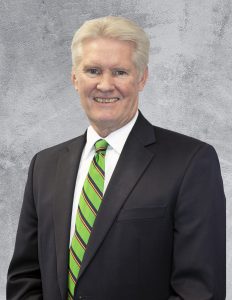Estate Planning & Charitable Giving
One of the greatest benefits to proper planning is the financial freedom it gives you to give back. Estate planning customized to you and gives you control over your legacy – on your terms.
Control Your Legacy
One of the biggest risks of probate is that your assets are not distributed on your terms. If distribution is left up to the probate court, you may not like what is done with them.
Protect Your Family
The death of a loved one is painful and difficult to handle. Handling the estate can be complex and emotional, leading to destroyed family relationships. If your estate is planned properly it will help you create an easy process to transfer assets and for your heirs to manage your estate.
Financial Freedom & Efficiency
One of the benefits of estate planning is to reduce burden of your estate for your heirs. This provides you peace of mind that your heirs will be taken care of while giving financial freedom to your heirs as well.
Charitable Giving
One of the greatest benefits to proper planning is the freedom it provides to give back. Many of our clients seek our assistance in transferring a portion of their wealth to institutions or a particular cause of their choosing. We help clients think through tax implications of charitable donations as well income strategies as part of their portfolio. Some considerations include:
- Charitable Objectives
- Timing of your gift
- Tax Consequences
- Type of asset gifted
- Managing qualified charitable distributions from retirement account
Whatever cause you wish to support, we are committed to help you find the best solution for your charitable giving objectives.
Estate planning services are referred to Paul Maxfield through Maxfield Law LLC. Paul Maxfield also serves as our Operations Manager at First Financial Advisors LC.

Education:
Attorney Paul R Maxfield holds a Bachelor’s degree in Business Management from the University of Phoenix (2004), as well as a Juris Doctor Degree from the J. Reuben Clark Law School at BYU (2010), and a Masters in Business Administration from Western Governors University (2015).
Practice:
As an attorney Paul’s practice emphasizes the important of a proper estate plan. He has vast experience, including:
- Estate planning documents including Wills, Trusts, Powers of Attorney, Healthcare Directives, Gun Trusts, Irrevocable Trusts, Asset Protection Trusts, Guardianship Designations, and more;
- Contracts such as Leases, Trust Deeds/Notes, Operating Agreements, Non-Compete/None-Disclosure Agreements, Employment Agreements, Business Contracts, Operating Agreements, By-Laws, Real Estate Purchase Contracts, etc.;
- Represented multiple businesses in legal proceedings, negotiations, and other adverse situations including: Contract Disputes, Negotiating Deals, Employment Law Disputes, FDCPA and FCRA Claims, and Trademark Disputes; and
- Assisted businesses in Regulatory Compliance.
Paul served as the 2015 President of the Utah Valley Estate Planning Council, an organization of professionals who provide services relating to Estate Planning. Paul was also a licensed instructor for real estate licensee continuing education classes teaching on topics such as Estate Planning, Business Organizations, and 1031 Exchanges.
Previous Experience:
Prior to becoming a lawyer, Paul experienced several business positions over the course of nearly 20 years which consisted primarily of management/leadership as well as accounting/bookkeeping positions. Paul also served as CFO and Compliance Officer for a logistics company.
To see what Paul Maxfield can do to for your estate planning needs, call Maxfield Law today. (801) 472-6687
Frequently Asked Questions
Do I need a will?
A legal will has its advantages and limitations. If a will is constructed properly by an attorney, it will be drafted in a way that is thorough, comprehensive, and sets clear expectations on how your assets should be transferred. If not constructed properly, then you will face the risk that your assets will not be transferred according to your wishes, contested at court, or simply cause more confusion for your family.
Why a Family Trust?
A trust is just a legal entity that manages the assets within it for the benefit of others. Trusts are used to provide flexibility and taxation benefits in the management of the assets. The type of flexibility is determined by which type of trust you establish (Revocable Trust, Irrevocable Trust, Charitable Trust etc…) Its also important to remember that not only HOW trust should be created but who (trustee) will be managing the assets. Here are some additional advantages leveraged by trusts:
- Creditor protection
- Avoiding the probate process
- Minimizing taxes
- Transfer assets according to your wishes
I don't know where to start?
An estate plan should begin by evaluating what is most important regarding your wealth and legacy. Typically, estate planning begins with these four basic components:
- Wills
- Advanced Health Care Directives
- Powers of Attorney
- Trusts
What happens if I die without a will?
If you have not established your own estate plan by executing a will, the state in which that you live will create one for you under what’s called “intestacy” laws. These set of laws will specify to whom assets will be transferred for a person who does have a will or an invalid will. Whenever this occurs, any property that hasn’t been properly planned will be decided by the probate court which is publicly available, therefore, invading your family privacy.
Whats the best way to protect assets while I'm alive?
If you review our estate planning brochure, it will highlight an estate planning timeline. On the timeline, you will notice that there are strategies for each time period for protecting your assets. Although selling your assets may not be appropriate, there are other strategies you could utilize such as the annual gift exclusion and a trust.
How do I preserve and protect my wealth and legacy after I pass away?
Legacy planning can be complicated, especially the more wealth accumulates. Depending on your goals and how you wish your assets to be managed, the use of a trust can help efficiently transfer assets to your heirs on your terms.
Revocable Family Trust
A revocable family trust can answer many of these questions. Here are some things to consider while consulting with an attorney :
- A trust document creates a living thing (your Trust) that has a life independent of you. It becomes your alter-ego, controlled by you.
- The main purpose of the Trust is to manage and distribute assets to your heirs when you pass away. The assets will be distributed according to your instructions, which will avoid the legal expense, hassle and time delays associated with probate.
- The Trust is “revocable” until you pass away – this means you can revise its terms or cancel it altogether at your discretion.
- Financial assets are transferred into the Trust and are managed by you as the Trustee of the Trust rather than the owner of the assets.
- When you pass away, title to the assets remains in the Trust to be managed or distributed to your heirs by the Trustee you have named to succeed you (First Financial Advisors may also serve as your successor Trustee)
- Rather than having your wealth quickly diminish, utilizing a Trust can help preserve your legacy by instructing the Trustee to distribute to heirs only the income of the trust for a period of years.




